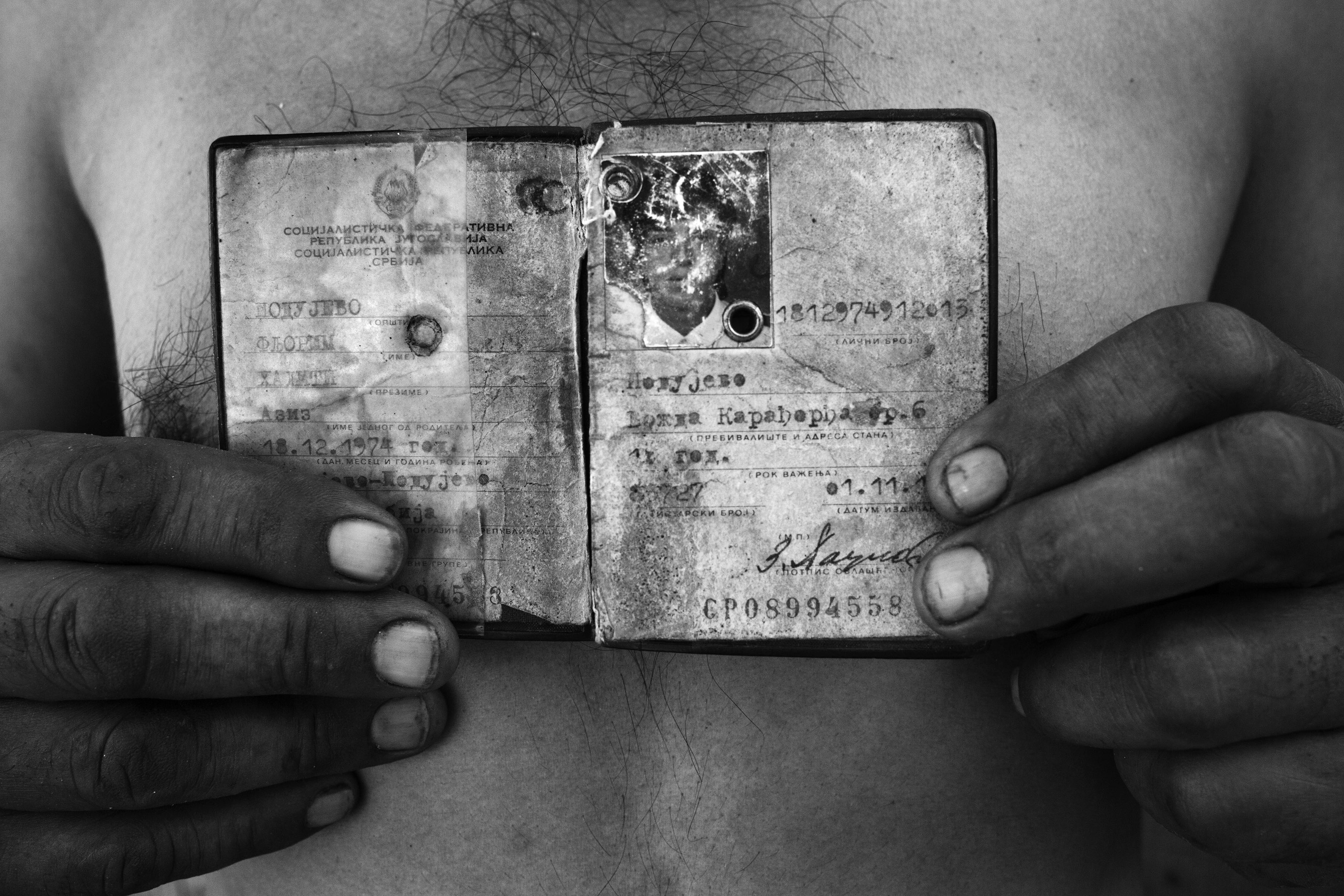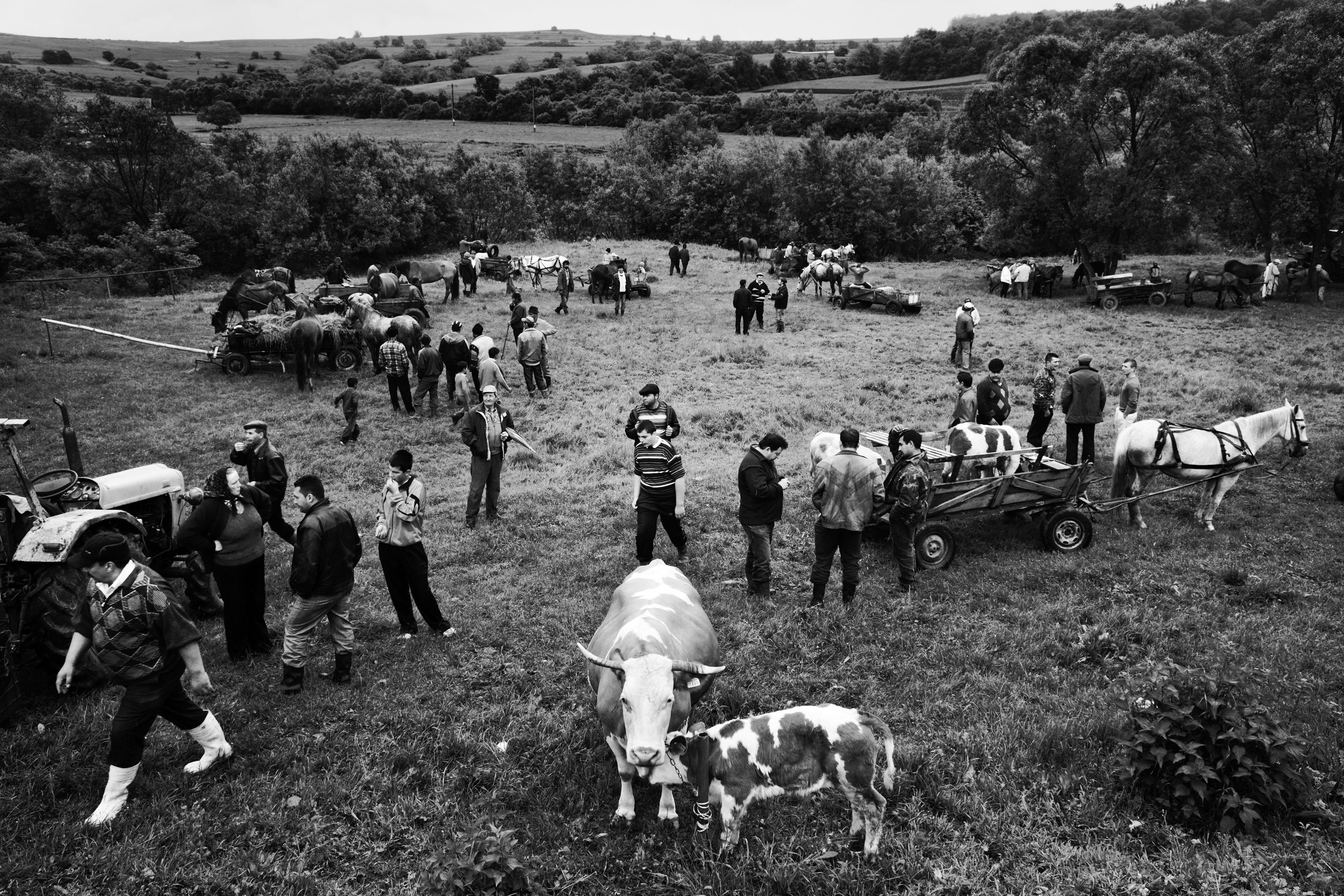Documenting the plight of the Roma people across Europe
- Text by Niall Flynn
- Photography by Åke Ericson

Back in 2009, during a visit to the Czech Republic, Swedish photographer Åke Ericson discovered that Romani families were being evicted from their homes in Breclav in order to make way for a new shopping mall.
The families – all of whom had lived there for several generations – had been forced from the town and moved to a stable, where living conditions were predictably pitiful. For Ericson, a photographer since the age of 16, his disbelief at the situation was the beginning of a project that would span almost 10 years.
Titled Non Grata (Latin for “undesirable, or “not welcome”), the subsequent series tracks the lives of the Roma people across Europe, with photos taken over the course of 17 different journeys to 10 different countries.
By documenting communities in France, Serbia, Kosovo, Romania, Sweden, the Czech Republic, Slovakia, Hungary, Spain and Switzerland, Ericson’s work includes twice the number of countries featured in Josef Koudelka’s landmark photo essay on the Roma people.
“I am a working class guy, I believe people should have the same amount of opportunity when they are born,” Ericson says.
“But, the Roma do not have that, especially in the Eastern part of Europe. Not so many people talk about this in the newspapers. They have no IDs, they are stateless. There are 12,000,000 Romas in Europe.”

Belgrade, Serbia, 2015 © Åke Ericson
Shot in black and white, the series focuses predominantly on the deplorable treatment of Roma people across the continent, offering a window into the prejudice, poverty and displacement that many families have to contend with.
For instance, Ericson cites a segregated education system in Romania and Slovakia, as well as the situation in Stockholm, Sweden, where families are forced to beg in temperatures of up to -18 degrees. (“I first saw people suffering from the beginning in Czech Republic, so, I decided to travel and see if it was the same in other countries in Eastern Europe – and it was”).
However, alongside the starker images, Ericson also seeks to celebrate the close-knit nature of communities, and the positivity that exists within them. By documenting parties and celebrations, plus intimate family moments, his work operates as an honest, total portrait.
“Many photographers had done these stories, but I would like to go under the surface,” he says. “Hopefully when people see my pictures, they will open their eyes and start thinking.”

Košice, Slovakia, 2014 © Åke Ericson

Richnava, Slovakia, 2014 © Åke Ericson

Rimavska Sec, Slovakia, 2015 © Åke Ericson
Non Grata is available in April 2018 from GOST Books.
The project is showing as an exhibition at Atelier für Photographie, Berlin from 26 April – 24 May, 2018 and at La Moulinette Gallery, Paris from 30 August – 16 September, 2018.
Enjoyed this article? Like Huck on Facebook or follow us on Twitter.
Latest on Huck

In the ’60s and ’70s, Greenwich Village was the musical heart of New York
Talkin’ Greenwich Village — Author David Browne’s new book takes readers into the neighbourhood’s creative heyday, where a generation of artists and poets including Bob Dylan, Billie Holliday and Dave Van Ronk cut their teeth.
Written by: Cyna Mirzai

How Labour Activism changed the landscape of post-war USA
American Job — A new exhibition revisits over 70 years of working class solidarity and struggle, its radical legacy, and the central role of photography throughout.
Written by: Miss Rosen

Analogue Appreciation: Emma-Jean Thackray
Weirdo — In an ever more digital, online world, we ask our favourite artists about their most cherished pieces of physical culture. Today, multi-instrumentalist and Brownswood affiliate Emma-Jean Thackray.
Written by: Emma-Jean Thackray

Meet the shop cats of Hong Kong’s Sheung Wan district
Feline good — Traditionally adopted to keep away rats from expensive produce, the feline guardians have become part of the central neighbourhood’s fabric. Erica’s online series captures the local celebrities.
Written by: Isaac Muk

How trans rights activism and sex workers’ solidarity emerged in the ’70s and ’80s
Shoulder to Shoulder — In this extract from writer Jake Hall’s new book, which deep dives into the history of queer activism and coalition, they explore how anti-TERF and anti-SWERF campaigning developed from the same cloth.
Written by: Jake Hall

A behind the scenes look at the atomic wedgie community
Stretched out — Benjamin Fredrickson’s new project and photobook ‘Wedgies’ queers a time-old bullying act by exploring its erotic, extreme potential.
Written by: Isaac Muk




